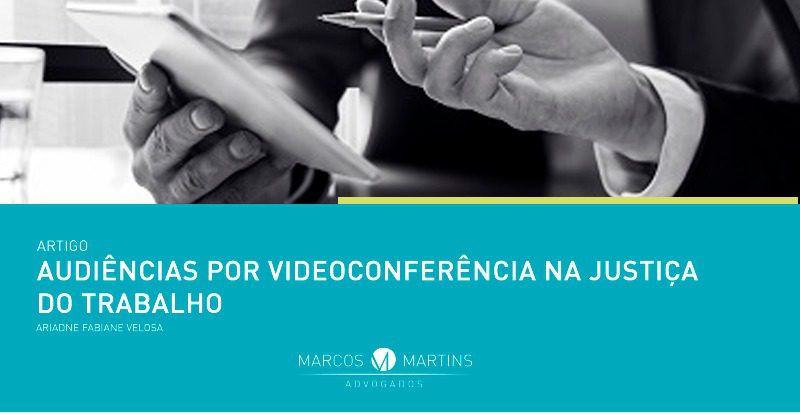Ariadne Fabiane Velosa
Lawyer at Marcos Martins Advogados
The constant changes and developments in Labor Justice, in its relations and in the means of production are a reality in the modern world. Every day we are surprised by new technologies, which stimulate ways of working and doing business.
In the same way that technology reflects on labor relations and the means of production, it also reverberates in legal proceedings and the Judiciary.
An example of this is the electronic judicial process, which has eliminated the traditional physical judicial process, thus making it possible to optimize the routine of procedural actors, eliminate the slowness of the judicial process and offer greater access to justice for Brazilian citizens.
It should be noted that access to justice is one of the fundamental human rights set out in article 5, item XXXV of the Federal Constitution and attention to full, swift and effective access to justice as one of the main ways of protecting fundamental rights in the employment relationship is great in Brazil.
In fact, technology has also provided the Judiciary with a series of procedural speed-ups and access to justice, such as teleworking, the use of the Whatsapp app to negotiate conciliations and receive notifications, teleconference hearings, among others.
The fact is that the modernization of procedural means has expanded access to justice and enabled measures that make it possible for the Judiciary to function in the event of a Pandemic, as is currently happening with Covid-19, given that it imposes a ban on face-to-face work in forums and courts.
Thus, with the modernization of the judicial environment, it is possible for proceedings to be carried out without being physically present in a given location, as proceedings are always accessible via a computer or even a mobile device.
In this context, given the current pandemic, videoconference hearings have become a necessity, given the need to maintain social isolation in order to avoid contamination by Sars-Cov-2, and are extremely necessary for the continuation of proceedings in the Labor Courts.
It should be noted that even before the Covid-19 pandemic, some procedural practices already existed by teleconference, such as hearing witnesses or statements from parties who were in a different place from the one where the case had been filed and so, given the need to maintain important procedural acts, such as hearings, that led the National Council of Justice to publish rule No. 314 to regulate the use of technological tools to hold hearings by videoconference and virtual trials.
Holding hearings by videoconference is an excellent existing solution to enable uninterrupted proceedings and comprehensive judicial provision, guaranteeing full access to justice for workers and employers.
The legally established rule of allowing labor hearings to be held “by electronic means” should produce its normal legal effects even for the period after the pandemic.
There would be no reason to have a judicial process that disconnected from the physical form and migrated to electronic form and not use the existing tools already provided for by law to allow hearings to be held by teleconference and virtual trials, always based on the procedural good faith of the parties.
Teleconferencing is an increasingly popular tool for avoiding unnecessary travel, reducing costs and expanding access to justice, while maximizing the principle of orality. However, the subject is still the subject of much disagreement in the legal world because it brings a certain amount of uncertainty to legal professionals, such as how to hold pre-trial hearings, safeguard the adversarial process and broad defense, as well as procedural legislation regarding the hearing of parties and witnesses.
However, between the advantages and disadvantages taken into consideration by legal operators, it is certain that the world is becoming increasingly technological and the Judiciary is gradually adapting to this new reality.
New solutions and new practices must be implemented to make it possible to take oral evidence at hearings by videoconference with the necessary security and the use of technology.
It is certain that holding hearings by videoconference meets the needs of access to justice and continuity of judicial provision and, at this point, it should be noted that the labor team at Marcos Martins Advogados is prepared for hearings by videoconference with advice for clients, including a team dedicated to the technological area so that they can be held successfully, obtaining great results for partner companies.
Any questions? Talk to our lawyers and get advice.
[rock-convert-pdf id=“15411”]








